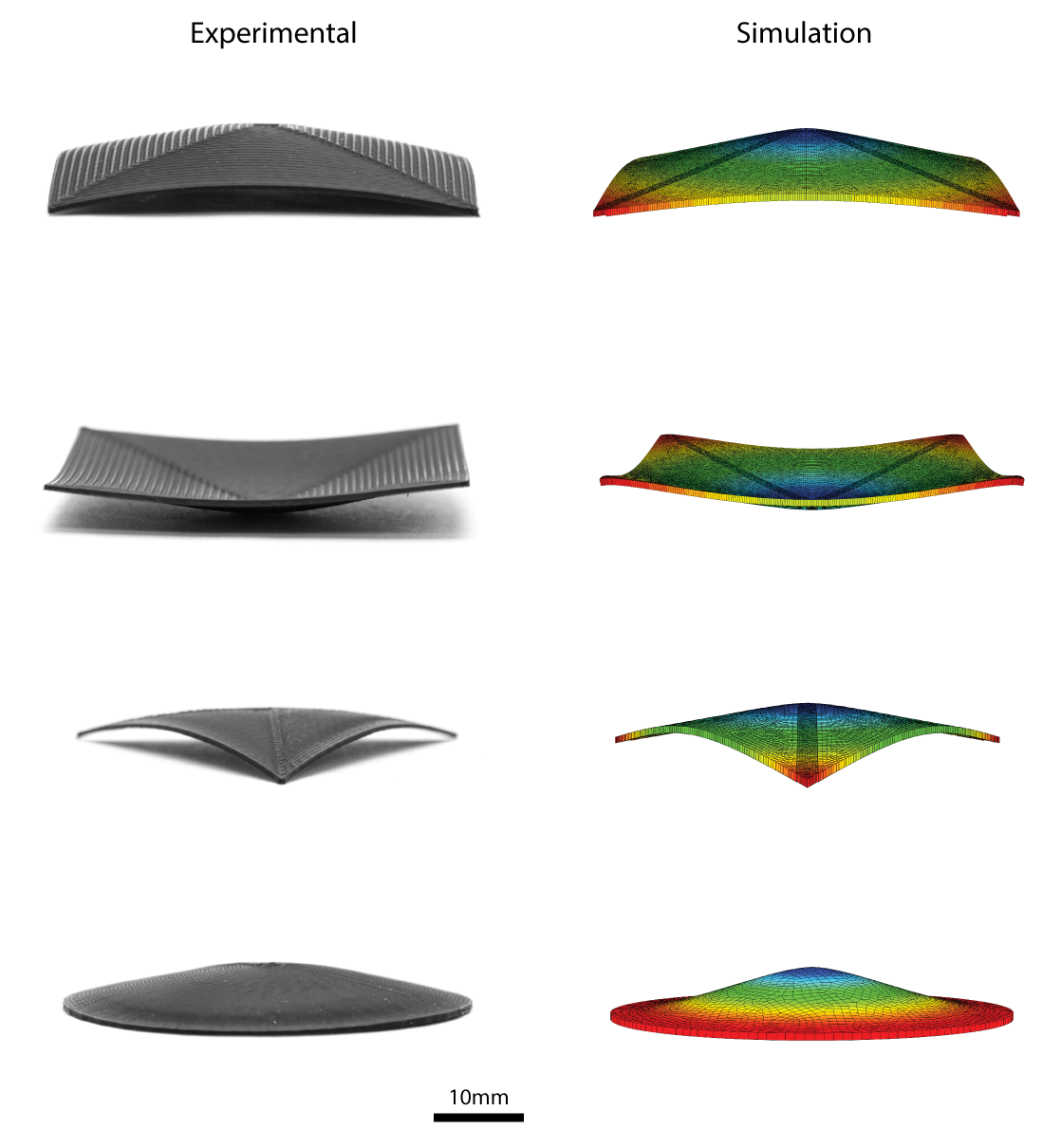4D Printed bistable structures
Shape reconfiguring bistable structures using heat activated fibers
For my Master's thesis I collaborated with MIT's Self-Assembly Lab where I conducted
research on 4D printed (i.e. 3D printed structures that undergo a shape transformation after
being activated) bistable structures. Th
The structuers were creating using a FDM 3D printer equiped with off-the-shelf shape-memory
polymers. The nature of the printing process pre-programs a shape activation into the printed
specimens. This is due to the extruded material being stretched as it undergoes a rather rapid
heating and cooling cycle as it is being printed. This activation is primarily determined by the
print path used to create the structure. However it is also partially influenced by the printing
parameters.
To design these structures a FEA simulation was made that utilizes a novel approach that is
highly simplified. The model was used to accurately predict the activation geometry which in
turn was analyzed to see if it is bistable or not.
The thesis introduces a new design process to creating 4D printing structures. By utilizing a
simplified computational model (that only requires a single experiment) as well as off-the-shelf
materials and 3D printer.
This work was eventually published in the journal "Engineering Structures",
research paper link
Supervisor : Prof. Tian Chen, Prof. Skylar Tibbits and Prof. Dr. Kristina Shea





